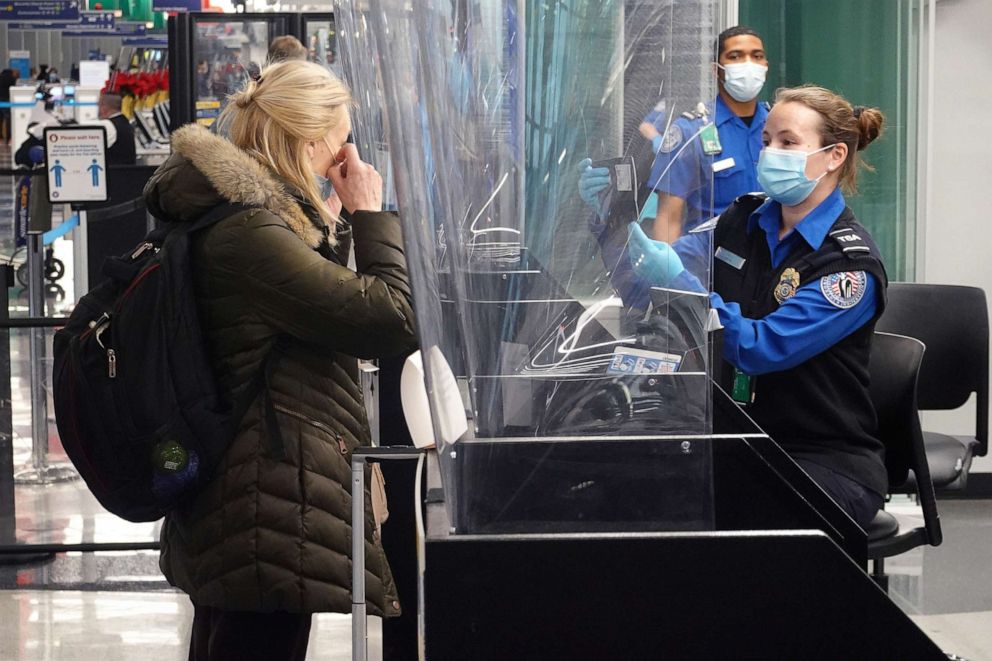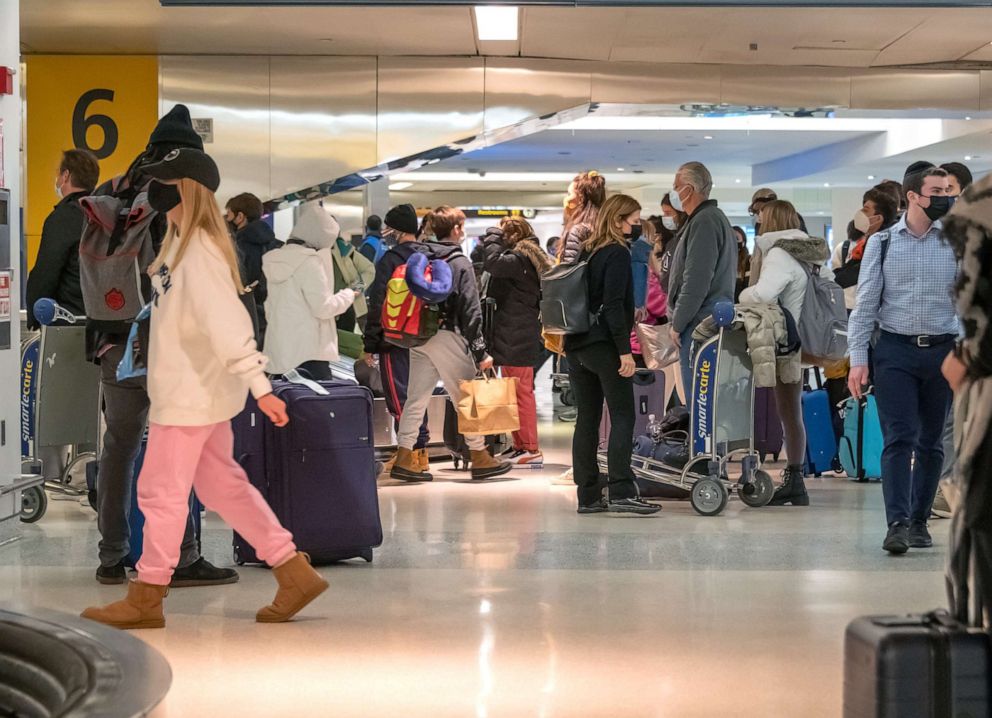Experts say vaccine rollout, cheap fares may lead to more rapid air travel rebound
One analyst said by late summer airlines might see a pent-up demand.
The coronavirus pandemic ravaged the airline industry -- plummeting demand to historic lows which resulted in the loss of billions in revenue and thousands of jobs. The International Air Transport Association (IATA) has estimated that air travel won't return to pre-pandemic levels until 2024, but some experts are now seeing indicators that air travel may make a more rapid recovery.
Pent-up demand
For almost a year, many travelers have avoided flying because of COVID-19 concerns, quarantines and travel restrictions. But even promising news about a coronavirus vaccine caused booking sites like Kayak to see an uptick in flight searches. As the vaccine rollout continues, industry analysts predict we will see a spike in passenger confidence.
"The availability of vaccines and testing will get people comfortable with traveling," Raymond James airline analyst Savanthi Syth told ABC News. "You'll see the leisure and the visiting friends and relative travel should come back, relatively quickly."
Syth explained that there is hope that the airlines will see this pent-up demand translate to bookings by late summer when most Americans are expected to have access to the vaccine.
Last summer, travel was down by 50%, but she is estimating this summer there will be a 70 to 80% return in leisure travel.
According to Kayak, the locations that have recovered the most in terms of searches since the pandemic began are beach locales, such as St. Thomas, Key West and Cancun. One of their recent surveys indicated that nearly half of Americans said taking a trip is among the three top social activities they look forward to most once a vaccine is widely available.
Low fares
Another factor that could generate a surge in travel is predicted cheap fares.
"I think this will be another good year for those who are wanting to fly," Syth said, "and, especially, I think they'll be a lot more bargains in what we consider off peak periods, that September, post-summer low, and before holiday periods."
Kayak said domestic fares are almost 20% cheaper than they were this time last year.

Airline analyst Brett Snyder, who writes the Cranky Flier blog, believes airlines will have to keep fares low to fill their planes.
"They want to get people going again and get people comfortable, make things move," he said. "You know, if they can raise fares, they will, they're airlines. But you know whether they'll actually be able to do that or not is unclear."
Snyder referenced U.S. airlines eliminating change fees as things airlines have been willing to do to generate business that would never have happened pre-pandemic.
"For people that are looking to plan travel this summer, there are some deals to be had," Snyder said, "But more of what we've been seeing is more short-term deals."
International travel struggles
The resurgence of international air travel is still obstructed largely by restrictions and quarantine requirements.
Many countries' borders remain closed to U.S. citizens and international travel among U.S. carriers is still down around 70% compared to last year, according to Airlines for America (A4A), an industry trade organization that represents major U.S. airlines.
"International travel is obviously going to be a lot tougher to recover than domestic," Syth said. "Each government is going to have their own rules as to who can travel if you look at a lot of the places."
Last month, the U.S. instituted a new policy that requires passengers coming from the United Kingdom to obtain a negative test result before flying into the country. In addition, A4A sent a letter to Congress pushing for a global program that would require negative test results for inbound passengers coming to the U.S. The group argued such a program would not only ensure the health and safety or passengers and workers, but would also continue to "provide the essential economic activities on which our country relies."
"We believe a well-planned program focused on increasing testing of travelers to the United States will further these objectives in a much more effective way than the blanket travel restrictions currently in place," the letter said.
Most recently Delta Air Lines established the first quarantine-free travel corridors between the U.S. and Europe as airlines continue to turn to testing as a way to safely reopen international travel routes that have been cut amid the pandemic.
In September, United Airlines saw passenger loads double after the airline established a testing protocol within the U.S. that allowed passengers traveling from San Francisco to Hawaii to bypass quarantine restrictions.
Countries without strict entry or quarantine requirements like Mexico have seen an increase in travelers from the U.S.
"Depending on how the different borders are opened up, and the rules around it, will have a large part in dictating how that recovery to international travel happens," Syth said.
Business travel lag

Business travel previously accounted for a third of U.S. carrier's profits. With most companies having employees work from home, the demand for business travel has declined tremendously and its recovery is predicted to lag behind leisure travel.
Southwest Airlines CEO Gary Kelly told CNBC in October it could take 10 years for business travel to recover. Delta Air Lines CEO Ed Bastion said in an interview with the Associated Press that once business travel does recover, it will be 10 to 20% lower than pre-pandemic levels.
"There's a bigger debate as to how much business demand travel will recover," Syth said. "We've had almost a year of getting used to doing things differently. But there's a potential for things to overshoot, a little bit and see pent-up demand, and then settle back down because so many people have not visited their clients in a long time."
Quarantine restrictions in various countries could hinder the resurgence of international business travel, Syth said.
"The requirement for testing will not be as big of an impediment for business travel," Syth said. "But on the flip side for business you really don't have time to quarantine."
ABC News' Sam Sweeney contributed to this report.




